
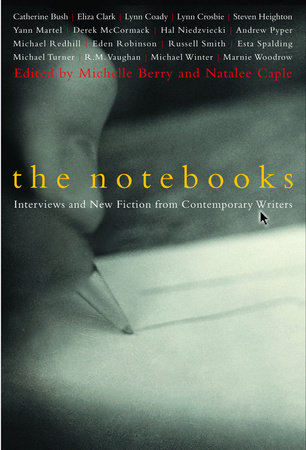

The Notebooks
Interviews and New Fiction from Contempory Writers
Edited by Michelle Berry
Edited by Michelle Berry
Category: Literary Fiction | Essays & Literary Collections

Buy from Other Retailers:
-
Aug 13, 2010 | ISBN 9780385672313
Buy from Other Retailers:
About The Notebooks
In the tradition of the Paris Review, The Notebooks is an exciting collection of original short fiction and in-depth interviews from Canada’s most celebrated and innovative young writers.
A provocative examination of the writer’s life in the twenty-first century, The Notebooks charts a new direction in Canadian literature. It brings together a unique collection of accomplished fiction, ranging from the classic storytelling of Michael Redhill to the more experimental style of Lynn Crosbie. In his keenly observed story “Seratonin,” Russell Smith captures the sensuous pleasures and dizzying energy of the rave scene. “Big Trash Day,” a hybrid of fiction and poetry by Esta Spalding, is a devastating commentary on poverty and a striking portrait of the shorthand that develops within intimate relationships. In a sample from a novel-in-progress, Yann Martel shares the process through which rough sketches become realized characters, and disparate moments become fleshed-out scenes.
The interviews, remarkable for their honesty and insight, bring us into the writer’s world, revealing the passion and inspiration that motivates these young writers, as well as the hardships they endure in pursuit of their art. By asking thoughtful and probing questions, Michelle Berry and Natalee Caple elicit frank and intriguing details of how writers work, structure their days, and order their physical space to facilitate the act of writing. Many of the authors here explore the impact of technological innovation and mass culture on contemporary fiction, as well as the influence of various art forms on the way they imagine stories. The writers in The Notebooks speak candidly about their political engagement, their passion for writing, and their desire to produce art that will last.
Contributors: Catherine Bush, Eliza Clark, Lynn Coady, Lynn Crosbie, Steven Heighton, Yann Martel, Derek McCormack, Hal Niedzviecki, Andrew Pyper, Michael Redhill, Eden Robinson, Russell Smith, Esta Spalding, Michael Turner, R.M. Vaughan, Michael Winter, Marnie Woodrow
"These seventeen writers come from different backgrounds, different parts of the country, have different lifestyles, and write very different kinds of fiction, yet the connections between them are still plentiful. As a group they are highly engaged with the world around them, politically sophisticated, intelligent, modest about their potential success, and passionate about the act of writing. We hope that The Notebooks inspires an ongoing discussion with young writers at work and answers some of the silent questions that readers have longed to ask." — From the Introduction
About Michelle Berry
Michelle Berry is the author of How To Get There From Here and Margaret Lives in the Basement. She has published short fiction in magazines and journals throughout Canada, is a reviewer for The Globe and Mail and Quill and… More about Michelle Berry
Product Details
Category: Literary Fiction | Essays & Literary Collections
Ebook | $11.99Published by Anchor Canada
Aug 13, 2010 | 512 Pages | ISBN 9780385672313
YOU MAY ALSO LIKE

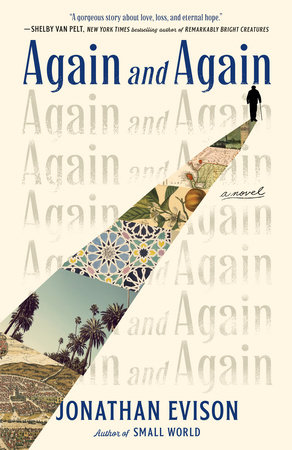
Again and Again

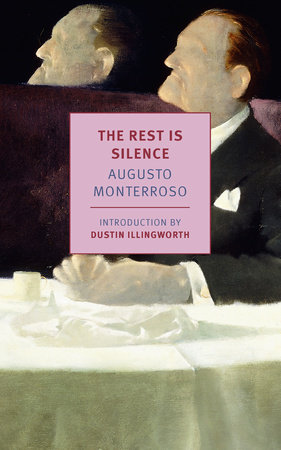
The Rest Is Silence

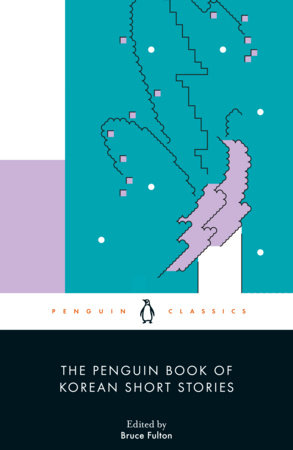
The Penguin Book of Korean Short Stories

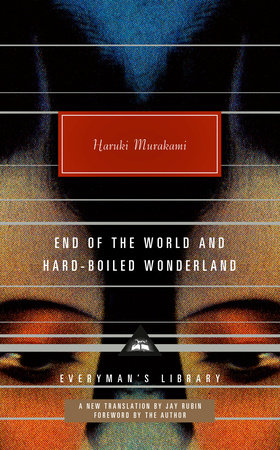
End of the World and Hard-Boiled Wonderland

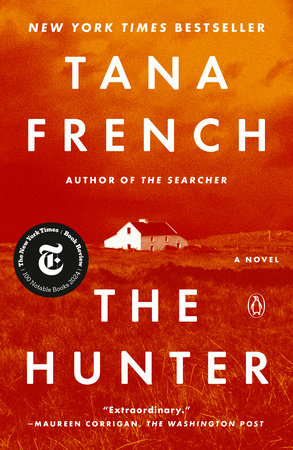
The Hunter

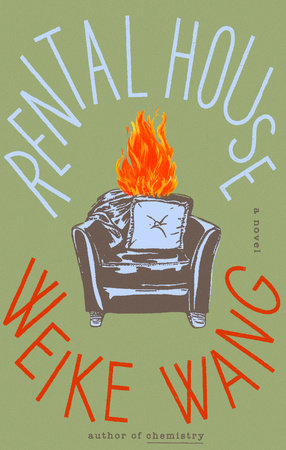
Rental House


Birds, Beasts and a World Made New

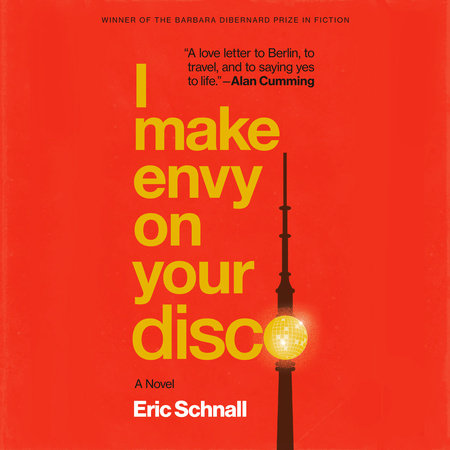
I Make Envy on Your Disco

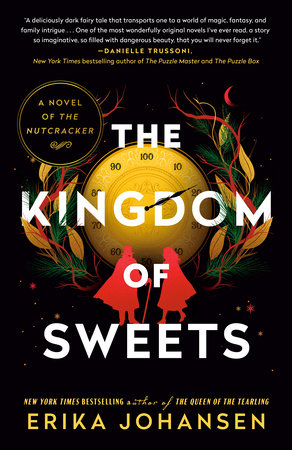
The Kingdom of Sweets

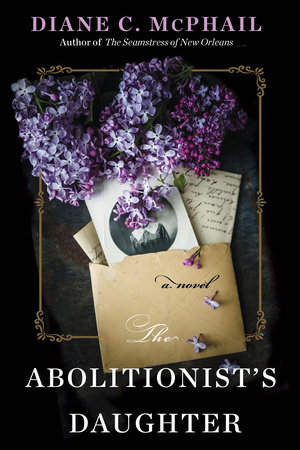
The Abolitionist’s Daughter
Author Essay
An Interview with Andrew Pyper, contributor to The Notebooks
Andrew Pyper’s interview was conducted in person at the Epicure Cafe on Queen Street in Toronto. Pyper is a natural conversationalist, frequently turning the questions back on the interviewer and expressing his permanent curiosity about everyone around him. Although this interview took place months before the attacks on the World Trade Center and the Pentagon, in retrospect, the prescience of some of our musing about the future is unsettling.
Andrew Pyper: Have you read Richard Ford’s The Sportswriter?
NC: No.
AP: It’s the same protagonist who is featured in Independence Day. Anyway, it’s about this guy, Frank Bascombe. He publishes a collection of short stories that is highly acclaimed and even makes him some money. He buys a house in the suburbs of New Jersey and starts working on a novel, but he never finishes it. He takes up a job at a sports magazine instead. So he becomes a journalist. And he stays a journalist. The novel is about this guy’s refusal to accept the spiritual and personal challenges of remaining out on a limb as a fiction writer. He goes for the good job. I feel for the guy. Sometimes that’s a tempting idea for me. Job security! You can have a job writing that more or less interests you. Your parents will be happy because you’re living on a salary, not on royalties.
NC: As long as your parents are happy.
AP: That’s the Frank Bascombe temptation. The idea of flying around with an expense account and knowing you will have your name in print every month.
NC: Tell me about the articles you’ve written for Gear magazine.
AP: I’ve written two feature articles. As a consequence they slapped my name on the contributing writers list, which is nice. When Lost Girls came out, out of nowhere the managing editor called me up and said, "I’ve read your novel and I really liked it. We’d like to send you to India." I thought that was great, although I don’t know what the connection was.
NC: "We read your book and we would like to get you as far away from North America as possible."
AP: Yes. "We consider you dangerous." So I did this story about Bollywood, the entertainment industry in Bombay. There, actors and directors are among the richest people in a devastatingly poor economy. As a result they are targets for Mob kidnappings and killings. The idea was to write a story about getting inside the Bollywood scene to describe the mortal danger that these people endure. I was in Bombay for eight days. I had never been to India. I did not know what I was doing. It was hot. I had one connection, one guy who I could call. He was a music producer. He recommended another guy who was a carpenter building sets for the big-budget movies. The movie he was working on at that time was called Mission Kashmir. I went to the set, and we made a deal that he would be my research assistant for a week and I would pay him about $150 U.S. In Bombay that was about two months’ rent. He was really helpful. On my last night there he got me an interview with India’s Brad Pitt, Hrithik Roshan. I got into his apartment, which was guarded by about eight or nine bodyguards with semi-automatic weapons. There were girls all around this police line of bodyguards. Two or three of them fainted spontaneously when he arrived. This actor was a national problem of a kind because his popularity was so great that something like ten thousand Calcutta schoolgirls had run away from home to meet him.
NC: Sort of a Nurse Betty in Bombay scenario.
AP: Yes. He was very nice. He was the son of a director but he had only released one movie at that time. It was an overnight smash. His father had been shot a few months earlier by these kidnappers. I forget the exact circumstances. But I think he had refused to pay a ransom. The father was shot because he had repeatedly refused to pay protection money. They shot him in the chest, but he survived. So his son was understandably afraid. He had enjoyed this tremendous success but he was living in a place where he or his family members could be shot as part of the cost of his fame. We talk about the cost of fame, but in Bombay the fear was palpable.
NC: What are some of the social factors involved?
AP: Let’s take our own economy, where someone like Jim Carrey can make $20 million on a movie. We permit such excess because much of North America lives at an economic level where basic survival isn’t an issue. In other words, we can afford not only to pay Jim Carrey but also to leave him alone.
NC: And we can all imagine stepping into his place. He’s not from old wealth or royalty.
AP: But in Bombay you can get a hitman to kill anyone for $100 U.S. So when you have poverty, desperation, access to weapons, and outrageous population density, you have the motivation, tools, resources, and people you need to build a really good racketeering business. In India, movie stars live like gods. They’re the only accessible examples of successful figures to most Indian people. So if you’re going to kidnap someone or rob someone, there are not many people to choose from. You go to the stars.
NC: That reminds me of what little I know about the height of Hollywood’s studio system and the coincidence of the American Mob.
AP: It’s a lot like that sort of corruption. Where there’s money and sex and drugs, so too go the Mob, and that’s still Hollywood. That was the first article I wrote. There’s been only one other since then. That was about bounty hunters. They call themselves the Seekers. They are a group of hunters who work out of Newark, New Jersey, which is an economically depressed, dangerous, imploded American community just across the bridge from New York. So I hung out for several days with these bounty hunters hunting down people who had skipped bail. If they capture someone they receive a commission of the total bail amount. Anyone can go to the United States, get a gun and some handcuffs, and call themselves a bounty hunter and chase criminals down.
NC: There must be a great risk of the wrong people getting shot.
AP: It’s totally Wild West. I was driving around with these guys with weaponry in the trunk of the car that was astounding. I’d never seen anything like it before. These were small military arsenals. Maybe if I was an American I’d be used to the occasional sighting of firearms and I would not have been so terrified, but I grew up in a small town in Southern Ontario. But after a few nights of stakeouts it started to feel like I was part of an old seventies movie, or an episode of Starsky and Hutch.
NC: What were they like? What were their backgrounds?
AP: One guy played half a season in the NFL. He had lived his whole life wanting to play football. Then he breaks his knee and he’s out of the game. He still remembers every single play he participated in throughout his brief professional football career. He recounted them to me like this: "So I went up twenty yards, went right the pass came through, bobbled it on my fingertips then pulled it in!" That was his life. He could remember everything. He was this big tough guy with a bum knee so he became a bounty hunter. They were all pretty rough characters. You wouldn’t want to provoke them. They liked the idea of being written about and maybe becoming famous. Their leader had written a book that was published around that time.
They call themselves the Seekers because they embrace a New Age spiritualist ethic of a kind. It’s a combination of ancient Egyptian stuff and contemporary crystal rubbing. They try to marry spiritual enlightenment with bounty hunting. They believe that in capturing these men and bringing them back to justice, they assist in turning them around. They believe that people are criminals not because of economic circumstance or because of racial discrimination, or any systemic problem. Criminals are criminals because they have made personal choices and they need to address those choices and turn their lives around. So by bringing them back to court they are forcing criminals to take the first step in initiating self-improvement.
NC: They sound like armed Jehovah’s Witnesses.
AP: Kind of, yes. Dragging people back to the fold.
NC: So, what do you take from that? Law-abiding Stratford boy that you are.
AP: I felt like I was conducting a terrifying sort of tourism. I got to spend several nights in the streets of a very troubled urban North American centre. The worst parts of Canadian cities would not equal this.
NC: No. We have crime, drugs, and prostitution but we don’t have the same kind of internal warfare.
AP: Exactly. You can get in trouble in certain parts of Montreal and Toronto but probably not arbitrarily shot. Which is the case in Newark and Detroit, and probably dozens of other cities. So the lesson for me lay in the experience of fear, and all that stuff that you kind of forget, living in Canada. We go to America to be glad to be Canadian. But we are not really in touch with what that means.
NC: I have a sense of many Canadians as innocent of the greater world of poverty, the kind we see in Bombay. Innocent also of the domestic terrorism and violence that we see in the States.
AP: Two forks result from that observation. One is the unfortunate Canadian superiority. We look at Americans and see the flaws in their social systems and congratulate ourselves for not entirely reproducing them here. We mock their cultural exports. We like to sniff at summer Hollywood blockbusters.
NC: After we’ve seen them.
AP: And left with delighted grins on our faces. So there is a snobbish hypocrisy about being Canadian and, on the other hand, in dwelling on the same faults of our neighbours that we neglect ourselves. We tend to gloat while failing to come up with solutions for our own problems. Let’s take the question of homelessness in Toronto. I think a lot of otherwise well-educated, broad-minded Canadians refuse to accept that there is a homelessness problem in Toronto because they’re confident that Toronto is a cleaner, better city than Chicago. I think we have collectively hypnotized ourselves into believing that there is a Canadian social safety net, therefore there is no reason for anyone to be on the street, and therefore the people who are on the street are there because of their own masochistic choices.
NC: The homeless person becomes the locus of terror for the working person. The fear of becoming the person on the street reinforces our own dedication to work. It reinforces our investment in the traditional workplace, the retirement package, even the sixty-hour workweek. And that reinforcement forces us to concentrate on things outside the family, outside of our humanity.
AP: The steps required to get there from where we are now are not too many. You have a couple of professional setbacks. It’s a very thin membrane between my life and his. I’m constantly, constantly amazed that there are institutions and individuals prepared to pay me for what I love to do. But as happy as my circumstances are, I recognize that ideas can change. Fashion, being what it is, can change. A new style of writing may come into favour and I may go out of favour.
NC: Do you think your success was accidental or did you have some sense of what you had to do?
AP: I didn’t anticipate the effect that Lost Girls would have. I didn’t have a plan.
NC: You wrote a book of short stories before that which was published with a small press. You received a lot of critical acclaim for your stories. Certainly, that established you as a young writer. But Lost Girls crossed over the market in a way that hardly any other literary fiction does.
AP: I guess so. And I’m certainly pleased with the way it turned out. But I didn’t foresee the stuff that happened subsequent to the book’s publication. When I’d finished the first draft and reread it, and let [journalist] Leah [McLaren] read it, we both looked at each other and I said, "Well, I’m pleased with whatever this strange creature is. But I’m not sure that anyone is going to publish it."
NC: Because it’s a ghost story, a police story, a literary novel . . .
AP: Yes. I thought that its mutant status would probably hurt it. Not that I cared that much, because Lost Girls was the book I wanted to write.
NC: What made you decide to write a novel after the success of your short stories?
AP: The novel was a convenient excuse to step away from the law. At that time I had trained to be a lawyer and I didn’t want to be one. I thought, if I’m going to walk away from this I have to do something more substantial than drafting a few more short stories. I wrote the short stories while I was in law school and over the course of my twenties. I thought, if I’m going to move to Peterborough, as I did, and live month to month, as I did, and wonder what the hell I was doing, as I did, I might as well write a novel. The story line was a convergence of a few disparate-seeming ideas. One idea was to write about drownings. The previous summer, before beginning the book, I nearly drowned in a lake in New Hampshire.
NC: How did that happen?
AP: I was there with Leah on summer vacation. She’s a very good swimmer and I’m an okay swimmer. We were at a phase in our relationship where I was still very interested in impressing her at every opportunity. We were at a lake and she told me that there was a mile swim from the beach to a jetty. A mile! I thought, a mile is a long way. But irrational masculinity prevailed. So off we went. When we were equidistant to the shore and to the jetty, I started to get anxious and tired. It hit me all at once. I started to freeze up and go down. Even treading water was becoming an effort. I called out to Leah and she swam back. She talked me down a bit and we made our way to the nearest-looking shore. All was well. But that terror — that was the only time in my life that I had ever thought, well, this could be it, I’m going to die here. Afterward, this gave rise to certain dreams and nightmares and eventually to the Lady in the Lake who appears in the novel, someone who pulls you down from below. I kept thinking about the idea of danger in the most banal, picturesque places. So that was strand one.
Strand two was the tragically frequent disappearances of young women that were happening all over Canada. I would find myself reading the paper and seeing these pictures of girls who were the victims of horrendous violence, and this had a cumulative effect on me. I wanted to address how it is that in our supposedly advanced, privileged, innocent society we still have functioning, employed, taxpaying people who abduct and murder children. The third strand was the notion of combining those elements within a nineteenth-century-style ghost story. I wanted it to read like a Henry James tale, where the ghost may or may not be real. I wanted the tension to lie not just in the spookiness but in whether or not you want to accept the unacceptable.
NC: What about the law-story side of it?
AP: The lawyer, Barth, was my vehicle through the book. He got the whole thing moving. His voice arrived in my head one day and refused to leave. I was still angry at the time. I was rejecting a profession. Someone said to me after the book was published that Barth is not me but he is the man I might have been had I stayed on my original course.
NC: He’s the man you refused to become. Many of your characters are unsympathetic in the beginning. In your book of short stories you have a character who is badly burned and ruins his intimate relationship out of self-pity. However, in your novel the protagonist redeems himself. By failing the world’s expectations and going another course, Barth gets on track and shakes away his indifference.
AP: I hadn’t really thought of this, but that might be true in the short stories as well. Barth is a very contemporary character insofar as he sees the world and other people in the world as little more than walking phantoms. He divides them into those who can be manipulated, those who can pay your retainer, and those he must push through to get to the front of the line. To him, people are not only secondary but also immaterial. This allows him to operate in the world according to a highly flexible morality. As a lawyer he has been dealing in rhetoric for so long. I wondered what it would be like for him to deal exclusively in the world of words and to treat their meaning as immaterial. A world like the one that Barth occupies enables the individual to do anything he wants. Barth comes back to the world of the living, the moral world, only after he goes through Laird’s envelope of souvenirs and picks up the girls’ hair, and sees the trinkets left over from their lives.
NC: He’s confronted by the physical ephemera of physical life.
AP: That’s right. Getting back to what we were saying about the homeless, it’s easy to believe that problems don’t exist when you refuse to see them. It’s very easy. NC: It’s the reinforcement of social strata through the deflection of guilt. AP: But if you smell the alley behind the house where I live, for example, you know that people live there. When Barth smells the strands of hair from Krystal and Ashley he is forced to confront the fact that they were living human beings, real as himself.
NC: What is the relationship between Barth and the girls’ killer all about?
AP: I think Barth sees Tripp as a mirror of the way that I see Barth. Where Barth is a hypothetical man that I might have avoided becoming, I think Tripp for Barth is his own worst-case scenario. Not that Barth necessarily has the same potential for violence. But with Tripp, a history of trauma and loss has caused him to fully enter the world of the imagination. His skill at storytelling is what drew the girls to him. Barth, as a practitioner of the law defending Tripp, stood the risk of being encompassed by his client’s imagination. We all talk about the imagination as if it is a benign faculty that assists us in play. But it is also a tremendously dangerous aspect of being human.
NC: We can all see aspects of ourselves that we wouldn’t confess. We can imagine ourselves as pathetic or cruel. I have often found myself thinking, God, I can’t believe I even thought that. And it seems to happen at the times when you are most powerful, when you are most confronted by someone else’s vulnerability.
AP: Absolutely. And once you conceive of a thing, the doing of it simply requires the activation of a trigger. On the other hand, if you fail to conceive of something, you are very unlikely to do it. I suspect that serial killers, in addition to all of the psychological things that are undoubtedly wrong with them, probably have very capable imaginations.
NC: One of the most sickening things about violence is that you can, in fact, imagine participating in it. Getting away with murder.
AP: It’s interesting that you confess to that.
NC: I confess to nothing.
AP: Well, I heard it. When I see people, self-righteous legislators or advocates for reform of some kind, on the news saying, "I can’t imagine how these people do these things," I think they don’t really mean that. The horror really comes from what you can imagine.
NC: How do you think access to mass media affects our personal reactions to events?
AP: TV is an especially dangerous medium in that it is so reliant on the visual. Even though there always seem to be people talking, very few words are actually used. One or two ideas or suggestions are repeated over and over, mantra-like. For example, the current media interest in the economy’s health makes it seem like we’ve all adopted this view that the interest rate, and the inflation rate, and other bogey-things are more important than visible social problems. People start to gauge their lives according to the abstractions that were meant to divert our attention from materiality. The economists have developed a language that applies in some ways to reality, but the language itself is divorced from anything that we commonly recognize in real experience.
NC: The economy is pure language. Currencies, like words, are made up of units that are ultimately available to meaning. We use the language of the economy to direct people’s actions.
AP: Inevitably, all of us participate to some degree in these abstractions. For example, in the hockey season when I see the Leafs win on TV, I cheer. In the summer, when I see the Canadian dollar go up on TV, I cheer. "Yay for us!" In both cases my cheerleading is meaningless. The arrow goes up. The arrow goes down. We smile. We frown. But Peter, the guy who lives behind my backyard fence, still sleeps on the ground in front of a stinking garage. Interest rates being delicately manipulated by smart guys in Ottawa have no impact on his life at all.
NC: What’s it like to have a senior citizen living in the alley behind your house who refuses to accept money?
AP: You end up giving him things instead. You give him a coat in the winter. You give him sandwiches in the summer. He is very proud. In a strange way he makes me think of my own parents. They live in the same house where all their kids grew up. They are now of advanced years. It’s a big house, hard to maintain. But the idea of suggesting to them, "Perhaps you would like to move to a smaller home," is unspeakable. They make their own decisions.
NC: I worry about other writers, certainly some of the poets. It’s this nagging fear thinking, what will happen to you? On my worst days I think that about myself.
AP: Do you think that expectations have changed? When I first started writing I thought it would be fantastic to be able to do it for a living, but I assumed it to be extremely unlikely. But I teach creative writing from time to time and my students are twenty-two or twenty-three years old, asking about book deals and agents, with unshakeable expectations of material success. This shift in confidence — even if it is unsubstantiated — seems to have occurred in the last ten years.
NC: My experience was different. I thought that everyone who was famous made money, so I had an idea that maybe becoming a writer was a completely reasonable thing to do. There was an interim period of actually becoming a writer and realizing that it was a completely questionable activity. But I was confronted almost simultaneously by my success and by the limits of my success. The more I knew about writing and the world of publishing, the more I realized what a huge leap of faith I had made. But at that point I had already leapt. I could see such freedom ahead of me that I couldn’t turn back.
AP: There comes a point where there is no turning back.
NC: What was that point for you?
AP: I think I have always had an internal commitment to the life of the imagination. From a professional standpoint I made the leap when I was called to the bar and I walked away.
NC: Why did you think about becoming a lawyer in the first place?
AP: That’s what people with more or less useless M.A.s do. I thought at first I would go on and get a Ph.D. I thought I would teach. But I realized that I was more of a generalist in my thinking. My successful academic colleagues felt more pleasure at burrowing into one topic, while I preferred a more freewheeling overview perspective. Law school was and is a convenient reservoir for my kind of talent.
NC: Lawyers and doctors symbolize success for the middle class. We learn that from our parents in childhood.
AP: Yes. When I’m really anxious I still say I’m a lawyer. In social situations when I don’t want to talk to people, when I’m among people who don’t know me and they ask me what I do, I just say I’m a lawyer, and it shuts the conversation down right away. If I were to say, "I am a novelist," oh my God. You can hear anything after that. The old, "Oh yes, I always thought I would write a novel in my free time."
NC: I say I’m a student or a secretary. Saying secretary ends all conversation.
AP: Perfect. The other half of the equation about going to law school was that my girlfriend at the time was studying law. So we were going to be lawyers together. I thought we would live happily ever after and of course that didn’t happen. She dumped me in the middle of first year. I thought, oh great, I guess I have to finish this thing now. I bear the ridiculous Protestant refusal to quit one thing and start another. Once I start something I must finish it.
NC: How do you respond to those critics and journalists who accuse contemporary young writers of shallowness?
AP: I think that the conventional wisdom among many people born in the early to mid-fifties is that because of the saturation of American consumerism, and the babble of multimedia, and the press of the economy, and the inauthenticity of our technologized, virtualized world, new writing amounts to a dumbed-down interpretation of what used to be "real life."
NC: Our lives are saturated with so many different influences that it is as likely for Martin Scorsese to be an early influence on writers as it is for Thomas Mann to be have been an early influence. It would be false for us to represent the world otherwise. The country lifestyle of Alice Munro is interesting to me, but it is also completely foreign to me.
AP: I would add that the hand-wringing and lament for loss of authenticity largely exhibits a prejudice against the sources of our inspiration, as if a work of art can only be as good as its original source. If your inspiration comes from pop culture then your art will necessarily be inferior. That makes me bristle. This is the world today, complain about it if you like, offer suggestions for its improvement if you have any, but it must be admitted that this is the world. Not the world of young people but the world that we all inhabit. Just as Alice Munro writes about the people that she sees in the county grocery store, Russell Smith writes about the waitresses he sees in nightclubs on Adelaide Street. To privilege one world over the other is foolish and predjudicial.
NC: Both of those writers exemplify the way that our surroundings trigger our own introspection. The writer is always a satellite to their world.
AP: The alternative is to write romanticized versions of the world in historically removed novels about a time when people were real and they really felt their feelings.
NC: That would be a constructed history. It would be an idealized history. Contemporary culture relies heavily on observation.
AP: I resent the drift that contemporary life is cheap and so contemporary writing is cheapened by writing about it. From a historic perspective it may be that the Gulf War does not have the dramatic ingredients of Pearl Harbor or Dieppe. It certainly does not have the nobility or romance that time has endowed Pearl Harbor or Dieppe with. Or the sense of corruption and error that Vietnam invokes. But the Gulf War is a new kind of war story. It’s a story of technological imperialism.
NC: I think we’re still processing those events. It’s interesting to talk about the recent past and the present because later on we will be able to look back at our initial impressions.
AP: When we turn fifty maybe we will be asking each other over Grand Marniers, "Where were you when they first started bombing Baghdad?"
NC: Or, "Did you see it coming when the Taliban started bombing the statues?" The present always has a sense of the science-fictional to it. We’re always both at the end and at the beginning of history.
AP: It does, doesn’t it? Do you think it always has? Obviously, if you were a child growing up in London during the Blitz you might have romanticized it as even being fun, like in the movie Hope and Glory. But it was also palpably real.
NC: You might also have found ways, as they did in Bosnia and Sarajevo, to make adjustments to live a life that simulated normalcy. After all, you would still have to get the groceries even if you didn’t know whether or not your house would be there when you arrived home with the bags. How then do you see the state of morality in contemporary society?
AP: That particular question figures largely in the book that I have been working on. I think it’s a particular challenge to "think rightly" today. People living in Canada have been fortunate enough to grow up without even the threat of being drafted and sent to some task that may cost us our lives. You and I have lived in a largely warless, economically flush time. My question is, Have we as a consequence undergone a moral softening? In particular, has moral softening been encouraged by having our lives made virtual in the media?
NC: You’ve said that in your new novel you address the way in which an ordinary person reacts in extraordinary circumstances to rise to those circumstances.
AP: Yes. Without going into detail, the basic structure is that I take a group of people and put them into a situation of extreme adverse physical challenge. Following that I introduce them to a series of questions: Will you act this way or that? How would you make your decision? Will it be according to moral principles or will it be more instinctive? If it is instinctual does someone who was brought up on Hollywood and video games have the equipment to take the appropriate instinctive position? Or are we, in fact, the amoral monsters we sometimes imagine we are? Those are the questions. The answers are in the novel.
NC: When you went to the Amazon to research your novel, were you shocked by the way you found yourself comparing the actual world to media representations of it? Do you think that reality is now constructed for us a priori?
AP: Yes. It might not have been that way if I had been brought up by wolves and had never seen a TV, but for me the Amazon seemed like a particularly remarkable National Geographic documentary without the editing. That was my first impression. The longer I was there the more I began to lose those alienated impressions because the physical nature of the place just brings you out. The heat, the unusual bugs on your skin, the unusual infections that result all make you think, well, you don’t get that at home! The more those things happen the more you are forced to recognize that there is a real world. The characters in my book go through a similar process. In the physical world you can only fictionalize yourself for so long.
NC: What are some of the differences between the instinctive humans that you mentioned and more civilized humans?
AP: I think our instincts are still there. We have a strong instinct to survive. Or at least to not be the first one to die. I think the more pertinent question is, Is the civilized training that we now suppose to be genetically built in to our psyches, is it more disposable than we presume? Honour and duty, do they fall away? Is it possible to be a twenty-four-year-old gentleman in this day and age without being a laughable anachronism?
NC: How do you see yourself in relation to that question?
AP: This may sound fussy or something, but I do aspire to gentlemanliness. For me the concept embodies important values of general conduct. It’s not about etiquette as such, it’s not about table manners. For me being a gentleman means working toward selflessness, a generosity, a daily sense of charity. I confess that I worry about sounding like a throwback, but I think these things are important. Particularly for someone like myself who enjoys outrageous personal privilege.
NC: Why do you think your personal privilege is outrageous?
AP: In global terms it just is. Being born in Canada, male, white, of upper-middle-class parents, and then going on to have a relatively successful professional life, puts me within the category of the most fortunate. For me not to concede that would be foolishness.
NC: You enjoy the process of writing. Tell me a little bit more about the process. You showed me how you break down scene by scene the procedure of the novel before you embark on it. You put the outline up on your wall and look at it while you are writing. What made you decide to work for that kind of breakdown?
AP: I didn’t know how to write a novel when I wrote the first novel. So I thought, be prepared!
NC: You were a Boy Scout.
AP: I am a Boy Scout at heart although I never actually was one. I just thought it was a reasonable place to start. Lost Girls turned out to be a fairly plotted novel.
NC: Did you plot it all before you started?
AP: I outlined it and wrote a first draft in which I thought I had answered my questions satisfactorily. It turned out I was wrong. I underestimated the complexity of constructing a sophisticated plot. I thought the hard part would be producing interesting sentences and believable and provocative characters. But on top of that, I was learning to string together events that would produce in the reader a compulsion to go on. Plot is the science of asking and answering questions in a way that produces a desired rhetorical result. While it’s a simple enough sounding challenge, it is actually very tricky. I had to go through a number of drafts and revise the outline several times. Once I started moving things around I realized that, just as you affect a power grid by moving one wire from a negative to a positive, you could similarly change the charge in a novel by arranging the sequence of events. At first this was tedious and frustrating. But I learned to love it. It was an acquired taste. I did it again for the second novel and this time I tried to anticipate the mistakes I made the first time around. It turns out that I made many of the same mistakes anyway.
NC: But with your short stories you start somewhere in the middle. So writing novels is an entirely different process for you.
AP: I’ve never outlined a short story. I don’t necessarily mean the literal middle. The middle is a moment. The middle is an image or a character that sets an idea in motion. In the story "Kiss Me" I related to the character’s desire to pour lighter fluid onto already going fires, for fun. I have often been warned that I will burn myself doing just that. So the story is a "what if?" What if I became disfigured as the result of a stupid accident? What would be the implications for the life that I had at the time? I chose an event and I built this story around it.
NC: What is your writing schedule like?
AP: I work Monday to Friday every morning, and then leave the afternoon for returning calls and correspondence. I find the morning best for the initial spewing. Then I have lunch, make my calls, pay the bills, and then take another look at what I’ve written in the morning. I fix the most glaring screw-ups right away so that the next morning when I look at where I am I can proceed right away.
NC: Do you write scene by scene? Do you start at the beginning?
AP: No, I don’t. The beauty of the detailed outline is that I can pick and choose what I feel like. I go shopping in the morning for what I feel like writing that day. I can say, sequentially I’m here but I don’t feel like that today. Today I’ll write the scene where they all kill each other.
NC: So you know your ending when you begin. Does it change at all?
AP: It hasn’t so far, no. Basically my day goes like this: Get up. Take dog out. Turn on computer. Go to current file . . .
NC: Begin thinking in complete sentences.
AP: Yes. So I’m usually in my housecoat, which is bloody cold when it’s winter. I always mean to have breakfast first, take a shower, and put on real clothes, but I usually write first. I have that Christmas-morning eagerness about getting to work.
NC: Your writing patterns must have radically changed with the novel. Certainly when you were in school you would have had your time much more prescribed for you.
AP: Yes, this is a new development. Before, there were always jobs, or school, or hangovers to tend to. I used to find time between classes, sometimes during classes, to write. Sometimes I wrote really late at night.
NC: Where did you get the structure for your outline?
AP: I don’t know. I’ve never studied writing in school. I think I absorbed it from reading Shakespeare and going to movies.
NC: But you even wrote down on what page a person would confess to something. How did you know what page it would happen on?
AP: I think I need to know how long I can keep a question open before the reader will tire of it being asked. I wanted to squeeze out the greatest amount of dramatic tension that I could from each question. Then I wanted events to create a kind of release. It was like designing a roller-coaster.
NC: That’s interesting. Because many authors have commented that, had they known the length and ending of their novels before they started to write, they would never have continued.
AP: Another good thing about the outline is it disciplines you. It keeps you from getting carried away with passages that don’t really contribute to the story. It also rewards you because you know exactly how much you have accomplished.
NC: I know that you love the work of writing, but some people have responded to you as if you don’t deserve the economic success it has led to. Someone once came up to you at a bar and said, "You’re Andrew Pyper. Give me twenty bucks." There are obvious benefits to your success. What are some of the weirder things that have come with it?
AP: It’s a paradox because while I do a kind of personal grappling with it, what does all this mean? How do I give back? Will it continue? The same kind of anxieties that everyone deals with. My success has not manifested any real emotional pathologies. But it sometimes seems to make other people behave strangely around me. All of us will encounter, at some point in our lives, people who are inexplicably angry at everything. Or people who are especially angry when good fortune is visited on others. I am sensitive to my own desire to not be the person that they want me to be.
NC: It’s a funny situation to be in as a writer. You make a decision to do something that terrifies your parents and makes everyone think that you’re unproductive and you’re going to be leeching off of society, and then you have to confront the opposite response of envy.
AP: I learned early on to accept my own helplessness in the face of other people’s reactions. Whether it’s book reviews or somebody’s strange remarks to me at a party, or on the street. Whether it’s praise or hostility, all of it is utterly beyond my control. I also think that most of the writers I know who approach this work seriously understand that a certain amount of vulnerability is in the contract.
NC: Do you think you would have had that confidence if you had become a lawyer, or does it have something to do with knowing that you’re doing something that you really want to do?
AP: I have a tremendous passion for what I do. The doing of it is a tremendous pleasure for me. I don’t suffer to do what I do and I don’t feel ambivalent about it. I don’t live for my vacations. I work on my vacations. The occasional jab at me from a stranger, or moment of anxiety, is a very, very small price to pay.
21 Books You’ve Been Meaning to Read
Visit other sites in the Penguin Random House Network
Just for joining you’ll get personalized recommendations on your dashboard daily and features only for members.
Find Out More Join Now Sign InAccount Overview Recommendations Orders Account Details Email Preferences Bookshelf








